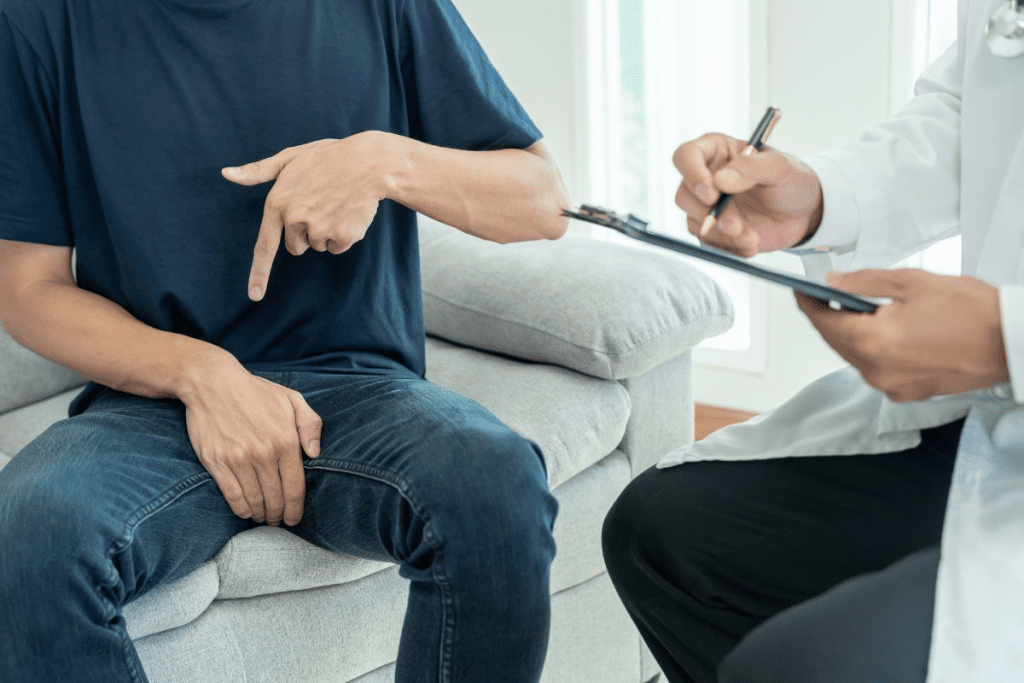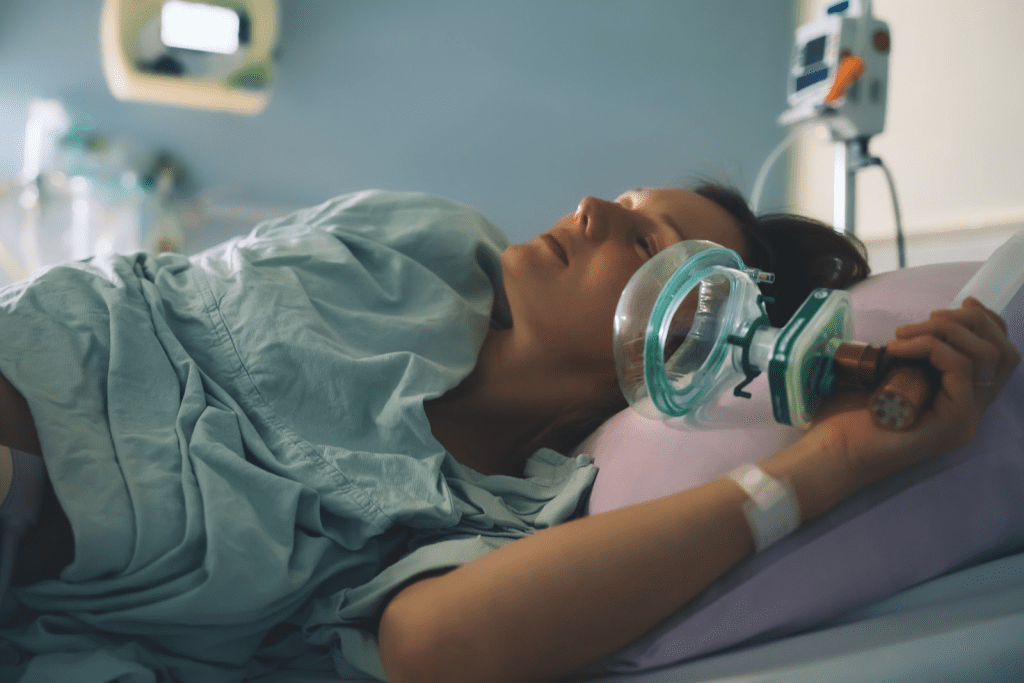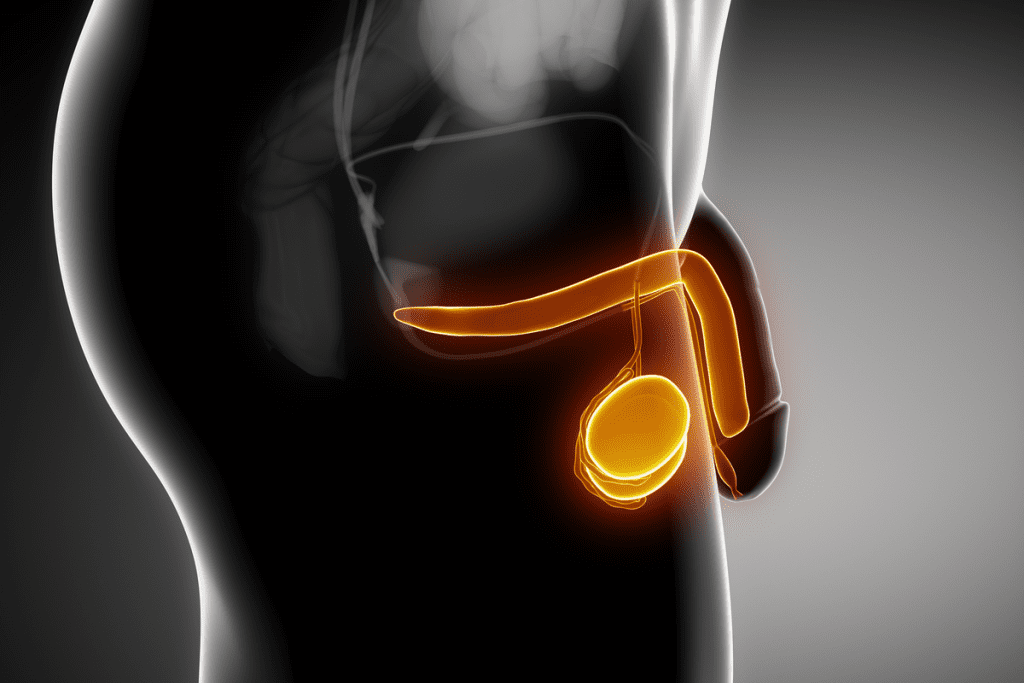Last Updated on November 25, 2025 by

Having a prostatectomy can be scary. Knowing what to expect in the hospital can make you feel better. At Liv Hospital, we aim to give top-notch healthcare. We also offer full support and guidance for international patients.
Most people stay in the hospital for 1 to 2 days after a prostatectomy. How long you stay can change based on your surgery type and personal needs. Our team is here to give you the care you need for a smooth recovery after prostatectomy.
Hospital stays after prostate surgery have gotten shorter. This is thanks to new surgical methods and better care after surgery. Now, we aim to keep hospital stays short without sacrificing care quality.
Most patients stay in the hospital for 1 to 2 days after surgery. The exact time depends on the surgery type and the patient’s health.
For many, a 1 to 2-day hospital stay is common after prostate surgery. Research shows that with new care paths, some patients can leave the hospital in just 1 day. Traditional methods might keep patients for up to 2 days.
We tailor our care to help each patient recover well. Our focus includes:
Thanks to new surgical methods and recovery plans, some patients can go home the same day. This option is usually for those who have had less invasive surgeries and are stable post-op.
Not all patients can go home the same day. Our team checks each patient’s health, surgery complexity, and home care readiness before deciding.

We’re dedicated to giving you the best care for a safe recovery. Whether you need a short hospital stay or can go home the same day, we’re here for you.
Knowing what affects your hospital stay after prostate surgery helps you prepare better. Several things are looked at to decide the best treatment and how long you’ll stay in the hospital.
Your age and health are key in figuring out your hospital stay. Older patients or those with health issues might stay longer. This is because they might face more risks during recovery.
“Advanced age can be a risk factor for longer hospitalization,” it’s said. This is because older bodies might not heal as fast.
The ASA (American Society of Anesthesiologists) score is very important. A higher score means a higher risk, which might mean a longer stay. We use this score to assess your overall health and surgical risks.

The size of your prostate and how complex the surgery is also matter. Bigger prostates or more complex surgeries might need more time. Our team considers these to plan the best surgical approach for you.
The type of prostatectomy you have can affect your stay. Often quicker because it causes less damage.
Understanding these factors helps us prepare you better for recovery. Our aim is to give you the best care and support during your treatment.
Prostate surgery has seen big changes, affecting how long you stay in the hospital. We use different methods like open, robotic-assisted, and laparoscopic prostatectomy. Each method has its own benefits and can affect your stay differently.
We work with patients to pick the best surgery for them. This ensures a care plan that covers everything from preparation to aftercare.
Open radical prostatectomy uses a bigger cut. But we’ve added Enhanced Recovery After Surgery (ERAS) protocols to make it better. These include:
ERAS helps cut down on complications and shortens hospital stays. Patients usually stay 1-2 days, depending on how fast they recover.
Robotic-assisted radical prostatectomy (RARP) is a newer, less invasive method. It leads to less blood loss, less pain, and faster recovery. Now, it’s common for patients to go home the same day after RARP.
RARP offers:
Laparoscopic prostatectomy uses small cuts and advanced technology. It causes less damage and heals faster.
Stays for laparoscopic prostatectomy are usually shorter than those for open surgery. Patients often leave the hospital in less than 24 hours, sometimes the same day.
In conclusion, the type of prostate surgery you have greatly affects how long you stay in the hospital. Our team aims to give personalized care and use the best surgery for each patient’s needs.
Recovering from prostate surgery starts in the hospital. Being ready for it can make things easier. Knowing what to expect can help reduce stress and make your stay better.
On surgery day, our team will watch over you as you wake up from anesthesia. Post-operative care is very important. We will help manage your pain so you’re comfortable. We also want you to start moving right away to avoid problems.
The first 24 hours after surgery are very important. Our medical team will keep a close eye on you. They will watch your vital signs and handle any issues that might come up.
We will also teach you breathing exercises and mobility to help you get better. Patients who go home within 24 hours usually do better. Our team will help you get ready to go home smoothly.
Before you leave, we’ll teach you important skills for recovery at home. This includes catheter care, managing pain, and knowing when to seek help. We’ll also give you all the details on your follow-up care and appointments.
We want you to feel ready and confident for your recovery at home. Knowing what to do can make a big difference. It helps you handle recovery better and get the best results.
Knowing how long you’ll stay in the hospital after surgery is key to a smooth recovery. Most people stay 1 to 2 days. They also need a urinary catheter for 7 to 10 days after surgery. It can take up to a year to fully recover from urinary issues, but most people get back to normal in 4 to 6 weeks.
Our team is dedicated to giving you the best care during your prostate cancer surgery. We know how important life expectancy and erectile function are to you. We’re here to help you through your surgery and beyond, answering your questions about getting stronger after surgery.
If you have more questions or concerns about your surgery or hospital stay, please reach out to us. Our experienced team is ready to help you from start to finish, guiding you through your recovery.
Recovery times can vary. But most patients can get back to normal in a few weeks. We usually tell patients to plan for 4-6 weeks of recovery.
Like any surgery, prostate surgery comes with risks. These include bleeding, infection, and urinary incontinence. Our skilled surgeons and team work hard to reduce these risks and help you recover smoothly.
Erectile dysfunction is a possible side effect. But our surgeons aim to preserve nerve function. We also offer treatments to manage this issue.
We teach pelvic floor exercises and other methods to manage incontinence. Sometimes, we recommend additional treatments or therapies.
We assess each patient’s health before surgery. Some health conditions might need special care or different treatments. Our team will discuss your situation and suggest the best treatment.
Robotic-assisted surgery has many benefits. It’s minimally invasive, reduces blood loss, and leads to faster recovery. Our surgeons are trained in the latest robotic techniques.
Erectile dysfunction is a concern after surgery. We offer treatments like medications, counseling, and therapies. These help manage erectile dysfunction and improve sexual health.
Life expectancy after surgery depends on many factors. These include overall health and cancer stage at diagnosis. Our team will discuss your prognosis and guide you on post-surgery care and follow-up.
.Compares outcomes (complications, readmissions) between outpatient (same-day discharge) and inpatient robotic prostatectomy, supporting safety of SDD in selected cases.
Subscribe to our e-newsletter to stay informed about the latest innovations in the world of health and exclusive offers!